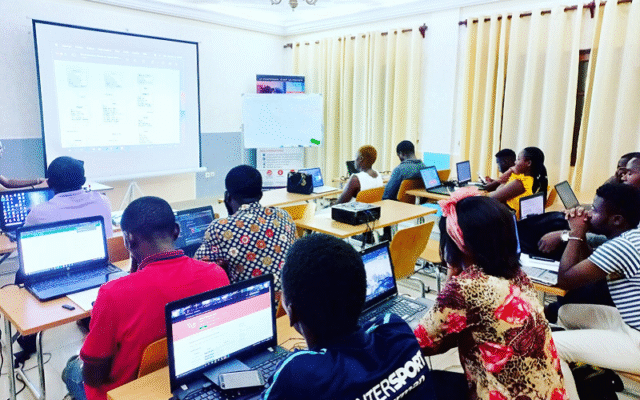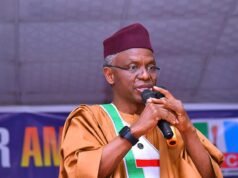In recent years, Africa has witnessed a powerful surge in initiatives offering robotics and coding bootcamps to its youth, reshaping how young people access technology education and preparing them for the Fourth Industrial Revolution. From rural villages to urban centres, schools and non-profit organisations are leading the charge toward greater digital inclusion, especially among girls, underserved communities, and rural learners.
These bootcamps are no longer luxuries reserved for big cities or elite schools. They are becoming lifelines for many, offering hands-on training in robotics, programming, and innovation. Through interactive workshops, curriculum integration, and public-private partnerships, this wave of tech education is changing narratives about who participates in STEM (Science, Technology, Engineering, Mathematics) and how.
Table of Contents
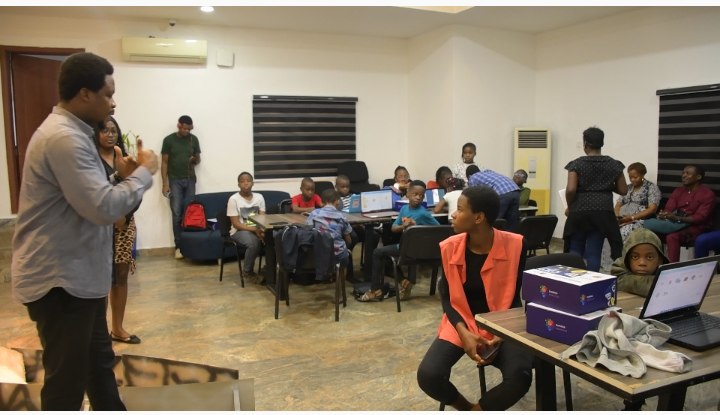
Success Stories from Around the Continent
Rwanda: Girls Coding to Build Futures
In Rwanda, a two-week intensive bootcamp called African Girls Can Code Initiative (AGCCI) brought together 75 bright young women from every district. They were trained in robotics (such as SPIKE PRIME kits), virtual reality, mobile app development, and programming. They also learned problem-solving and digital literacy. As part of the programme, each participant was left with a laptop and an internet connection, helping to sustain their learning beyond the bootcamp, according to UN Women Africa.
South Africa: Girls Can Code and National Curriculum Reforms
In Gauteng Province, South Africa, about 91 Grade 11 girls from communities across eight provinces recently participated in the third AGCCI bootcamp. Over ten days, they explored computer science, website development and creative design, often working with real clients to build websites and graphic materials. The program emphasised not just technical skills but also collaboration, critical thinking and self-confidence.
Meanwhile, South Africa’s Department of Basic Education is pushing to integrate coding and robotics into early grades. By 2024-2025, they plan full implementation of coding curricula across many grades, aiming to build foundational digital literacy from an early age.
Nigeria: Rural Reach, Workshops, and Industry Partnerships
In Nigeria, both rural and urban settings are seeing increased activity. In Lagos, the ThinkYoung-Boeing Coding School has trained children between ages 10 and 17 in robotics, web design, programming, drone technology, alongside soft skills like presentation and communication.
In rural communities, smaller NGOs and volunteer groups are stepping in: mobile labs, refurbished computers, workshops in robotics and coding, even in places with erratic electricity. For many youth, these boot camps are their first exposure to such technologies.
In Abuja, for instance, a two-day STEM workshop by Teens-Launch Africa brought together students to build robotic cars, learn Scratch programming and virtually no prior experience, and apply what they learned to real problems.
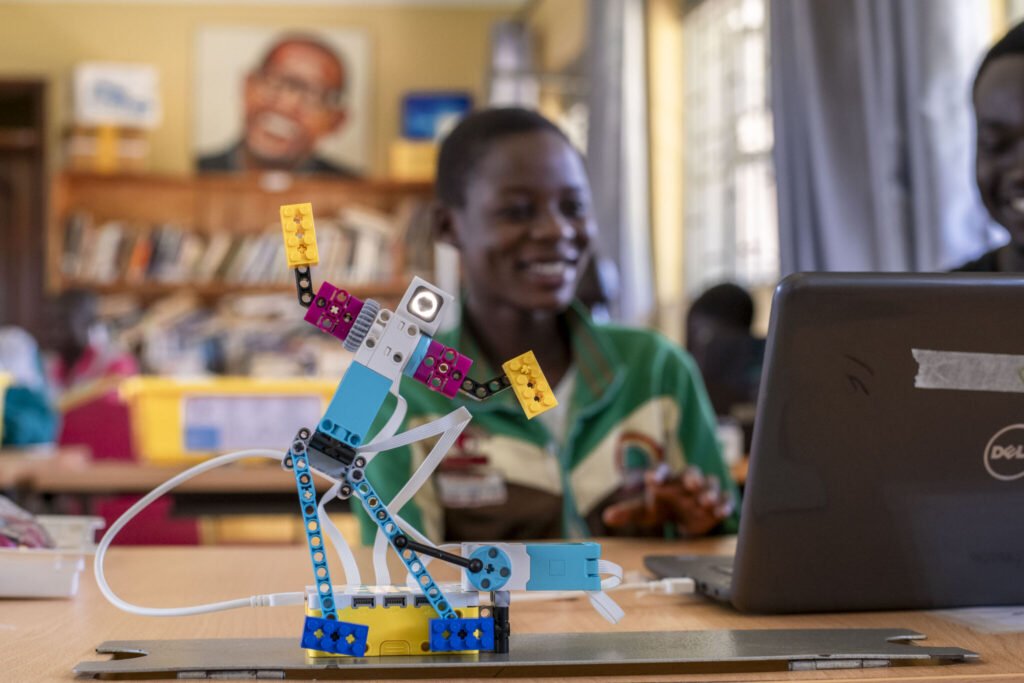
Challenges and Innovations: Bridging the Barriers
Even with the growing momentum, the expansion of robotics and coding bootcamps in Africa’s youth faces significant hurdles. Power supply issues, internet connectivity, high cost of robotics kits, and lack of trained teachers are recurring obstacles. Often, programmes rely heavily on donor funding and volunteer effort.
But these challenges are pushing people to innovate. Some schools are using solar power to run computer labs. Others share robotics kits among several schools. Mobile labs travel to remote communities. NGOs and tech organisations are experimenting with low-cost materials and local manufacturing of parts. Digital platforms are used for remote mentorship. These innovations are helping to reduce cost, increase reach, and maintain continuity in learning.
Also critical is the gender dimension: many bootcamps are particularly focusing on including girls and overcoming deep-seated cultural biases that imply tech is better suited for boys. Programs like AGCCI have shown that when girls are given access, mentorship, and encouragement, they respond with creativity, leadership, and technological proficiency.
What Must Be Done: Scaling, Policy, and Future Directions
To sustain and scale the positive changes, several strategies are essential:
- Government Policy & Curriculum Reform
Governments need to formally integrate coding, robotics, and computational thinking into basic education curricula. As seen in South Africa, such policy reforms help create standardised expectations, guide teacher training, and ensure all students are exposed to tech early. - Public-Private Partnerships
Collaborations among government, NGOs, educational institutions, and tech companies are critical. Funding, mentorship, infrastructure (internet, power, labs), and equipment often depend on these partnerships. Programmes like ThinkYoung & Boeing are good examples. - Teacher Training & Local Capacity Building
For bootcamps to have a lasting impact, local teachers need training in robotics, coding, and pedagogy. Where teachers are well-equipped, students not only learn technical skills more effectively but also see tech as part of everyday learning rather than a separate, special course. - Appropriate Infrastructure & Access
Solar power, stable internet, locally sourced robotics kits, shared labs, mobile labs, and remote learning tools can help solve problems in under-resourced areas. Ensuring affordability and maintenance is vital. - Inclusive Programming & Gender Equity
Specific efforts to encourage widows, girls, and rural youth must continue. Mentorship, role models, supportive environments, and recognition help reduce gender gaps and social bias. - Sustainable Funding & Scaling
Dependence on short-term grants can limit continuity. Long-term funding models, possibly from government budgets, private sector investment, or social enterprises, will enable programmes to grow in scale and reach.
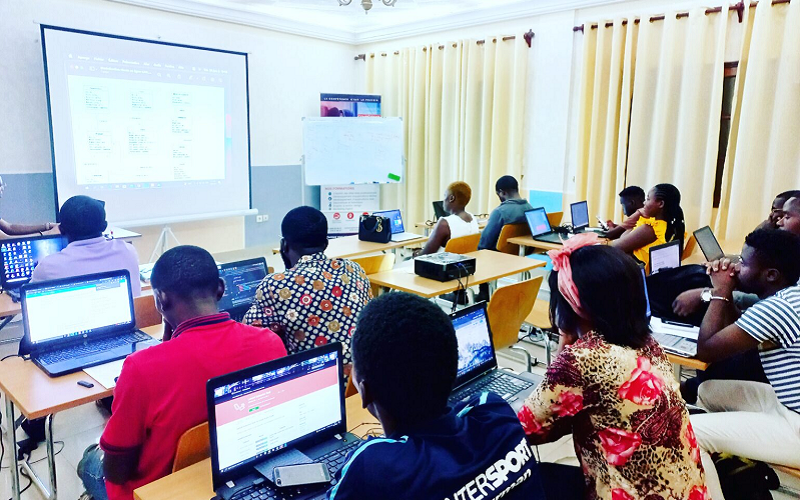
Conclusion
Robotics and coding bootcamps are doing more than teaching young Africans how to write code or build robots. They are breaking down barriers of geography, gender, and socioeconomic status. They are igniting curiosity, empowering youth with confidence, and shaping mindsets that see technology as a tool for solving local problems.
For many young people, a bootcamp may be their first opportunity to handle a robot, build a prototype, compete in tech challenges, or even dream of a tech career. To sustain this momentum, policy makers, private sector actors, educators, communities, and funders must work together to scale access, improve infrastructure, and ensure quality, inclusive learning.
If these efforts continue, we may soon look back and see that bootcamps were the spark that turned Africa’s youth into a generation of innovators, problem-solvers, and leaders in tech.
Join Our Social Media Channels:
WhatsApp: NaijaEyes
Facebook: NaijaEyes
Twitter: NaijaEyes
Instagram: NaijaEyes
TikTok: NaijaEyes


